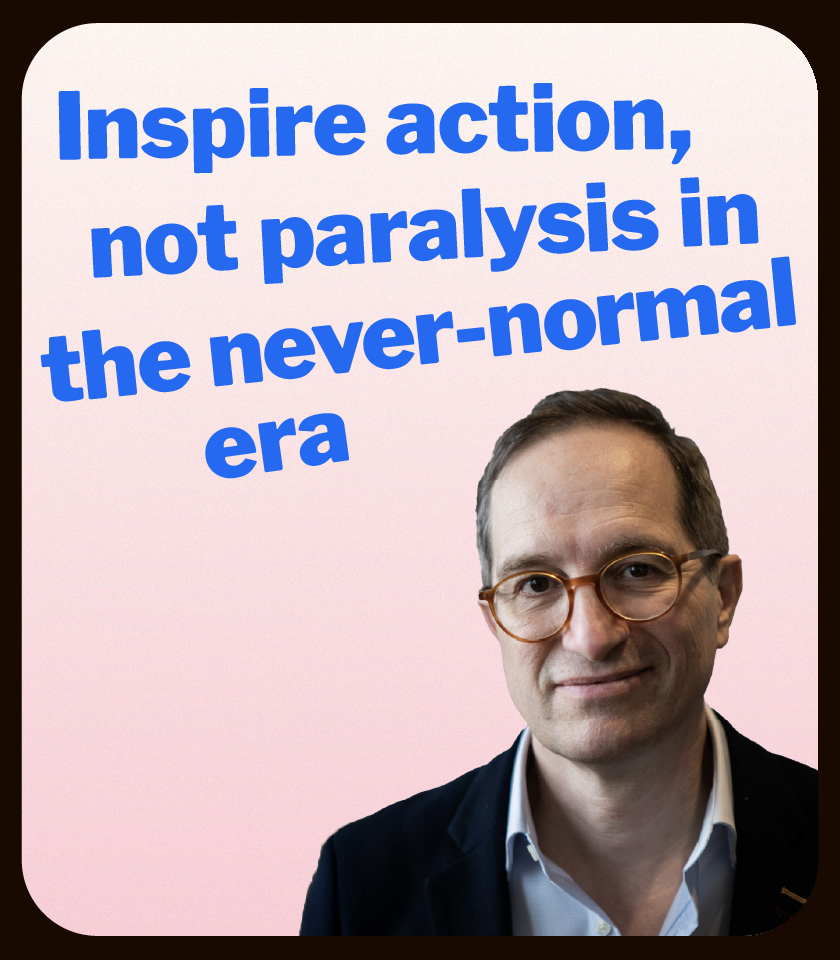To one degree or another, volatility has always been a feature of the advertising industry. But with the ever-growing dominance of big tech and advancements in AI, that sense of volatility has escalated. And as a response, big holding companies are trying to get bigger – like the recently announced merger between two ad giants that would result in the largest holding company in the communication world. It’s hard to know what it means for the ad biz at large. Nonetheless, marketing experts and big ad folks with even bigger titles have chimed in with euphemistic phrases like “cost synergies” and “greater optionality.” But corporate jargon does little to comfort your average agency employee. And while all the hot takes have already gone cold, I can speak to my experience of working at both, a large holding company ad agency and a small, independent one. Because even though both agency models have their merits, they do seem to serve different advertising gods.
For me, the distinction is clear – but this may just be my very specific experience and biased opinion. Holding companies prioritize their shareholder value, while independent agencies are dedicated to increasing profits for their clients. And that distinction is starker when we look at the upcoming mega-merger. From what I have researched, it really comes down to survival. A colossal pulling of resources to compete with the Googles and Metas of the world. But that impulse to survive isn’t restricted to just the respective holding companies. Unless they're a mission-critical C-suite type, employees will have to go into “full survival mode” as well, agonizing over the optics of their every move. Staying late just to be seen staying late. Competing and outshining colleagues for the best projects. Essential tactics during mergers since they can be ruthless against redundancies. But I always felt survival was a natural feature of the holding company experience, where your value as an employee is subject to quarterly earnings. And survive, I did. Mostly by learning habits that seem less useful at the independent agency I work for now.
Back in the labyrinthine structure of a holding company and without the charisma and flair of a creative “superstar,” (plus, an overreliance on exclamation points in emails), I learned to keep my head down, to speak up in meetings only when spoken to, and to avoid big risks. Because in an ecosystem where supervisors answer to their supervisors who answer to executives who answer to bigger executives who answer to shareholders, risk isn't always rewarded. Risk implies a tolerance for failure. And learning from and capitalizing on that failure takes time and patience. Which is in short supply when big budgets, hard deadlines, and layers upon layers of oversight are involved. Failure just wasn’t efficient. And when it comes to holdcos and their mergers, efficiency becomes a guiding principle. So I faced every day with some anxiety – concepting and writing for the layers of leadership I knew work had to go through to survive. But writing for clients? Not so much. They were secondary to my career and sense of survival.
In contrast, I’m finding that the ecosystem of the independent agency I work for now fosters a different set of behaviors. Behaviors that aren’t about corporate survival, but business solutions. Because those solutions are only arrived at when the rank and file feel their voice has value. When they can see a direct line from their work to the impact it has on clients. Free from the layers of leadership and survival impulse, your average creative can feel they are integral to an organization, not just working for it until the next layoff. A we're-in-this-together kind of vibe is woven into the experience of an independent agency that I didn’t feel at the holdco. So now, I’m learning to speak up in meetings. To take risks and try things out. And now more than ever, I’m not only more invested in the day-to-day operations of my workplace but also in the well-being of the people I work with. It feels like we have each other’s backs. Because even though the quality of the work is of the utmost importance. So is how it gets done. And where I was once driven by the impulse to compete, I’m now more drawn to the results of collaboration. Because maybe, instead of just trying to survive, I’m starting to see ways we can thrive. Just something to consider for industry leaders: What kind of ecosystem and culture do you want to be a part of?


.jpg)

.png)



